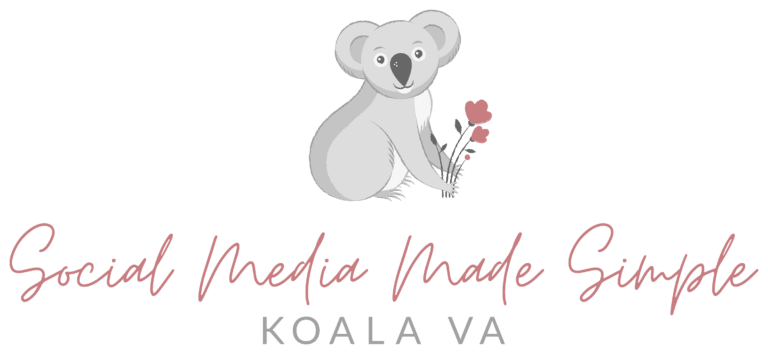Social media is such a powerful tool for therapists. But with great visibility comes great responsibility. And that’s where a social media disclaimer comes in.
Trying to navigate the line between educating and engaging vs. protecting yourself and your clients is something a lot of therapists find deeply uncomfortable. They feel unsure about what they can and can’t say online, or how to manage messages from followers seeking support. A social media disclaimer helps ease that tension by setting clear boundaries upfront.
Here’s why every therapist needs one (and why it’s not just about “covering yourself”).
1. You’re Not Offering Therapy On Social Media, And That Needs to Be Clear
Even if your posts are packed with insight and empathy, social media is not a therapeutic space. Your audience might feel helped or even moved by your content, and that’s wonderful, but it’s crucial that they know this doesn’t mean you’re offering therapy.
A social media disclaimer is your gentle but firm reminder: “This content is educational and not a substitute for therapy.”
This clarity protects your professional integrity and helps potential clients understand what working with you really looks like.
2. It Sets Expectations Around Communication
If you’ve ever received a heartfelt DM from someone sharing personal details or asking for guidance, you’ll know how sticky it can feel.
Do you ignore it? Reply with empathy but no advice? Redirect them elsewhere?
With a clear disclaimer in place, you’ve already set the boundary. You can respond kindly within your scope, without stepping into therapeutic territory. For example:
“Thank you for your message. Just to reiterate, while I’m honoured you’ve shared this with me, I’m not able to offer personalised support via social media. If you’re looking for therapy, here’s how you can work with me…”
Having this boundary publicly stated takes the pressure off you to make those decisions in the moment and ensures your followers know what to expect.
3. It Reinforces Ethical and Confidentiality Standards
Therapy is built on trust, and confidentiality is at its core. But social media isn’t confidential.
Your disclaimer can gently but clearly state that DMs, comments, and other platform communications aren’t private and shouldn’t be used to share personal or sensitive information.
This isn’t about being cold or distant, it’s about maintaining the integrity of the therapeutic relationship and keeping your online presence aligned with ethical best practices.
4. It Helps Build Trust with the Right People
Here’s the beautiful thing: setting boundaries builds trust, not distance. When people see that you’re clear, ethical, and consistent, they’re more likely to view you as a credible professional.
A well-worded disclaimer shows that you’re serious about your work and about holding space in the right way. It invites people in while clearly defining what they can expect from your presence.
And that matters, especially when you’re using social media to connect with your ideal clients. Trust is what moves someone from a casual follower to a confident enquiry.
5. It Makes Your Social Media Presence Feel Safer for Everyone
Boundaries on social media are containers, not barriers. And when your online space feels safely held, it becomes more impactful.
For your followers, a disclaimer clarifies where they can go if they need help.
For you, it provides structure and clarity around how you engage online.
And for both of you, it creates a space that’s thoughtful, ethical, and aligned with your values.
Final Thoughts
Having a social media disclaimer isn’t about scaring people off or sounding overly formal. It’s about being intentional and ethical in the way you show up online.
It says: “This is what you can expect here. This is how I can help. And here’s what I can’t offer through this platform.”
If you’re showing up on Instagram, Facebook, LinkedIn, or anywhere else professionally, it’s worth having one.
And if you don’t yet have one? I’ve created a free Social Media Disclaimer Template for Therapists to help you create one that’s simple, kind, and completely customisable. Add it to your bio, link in stories, or pop it into a pinned post so your boundaries are clear from the get-go.
Because helping others starts with protecting yourself.
Download the FREE Social Media Disclaimer Template for Therapists.
